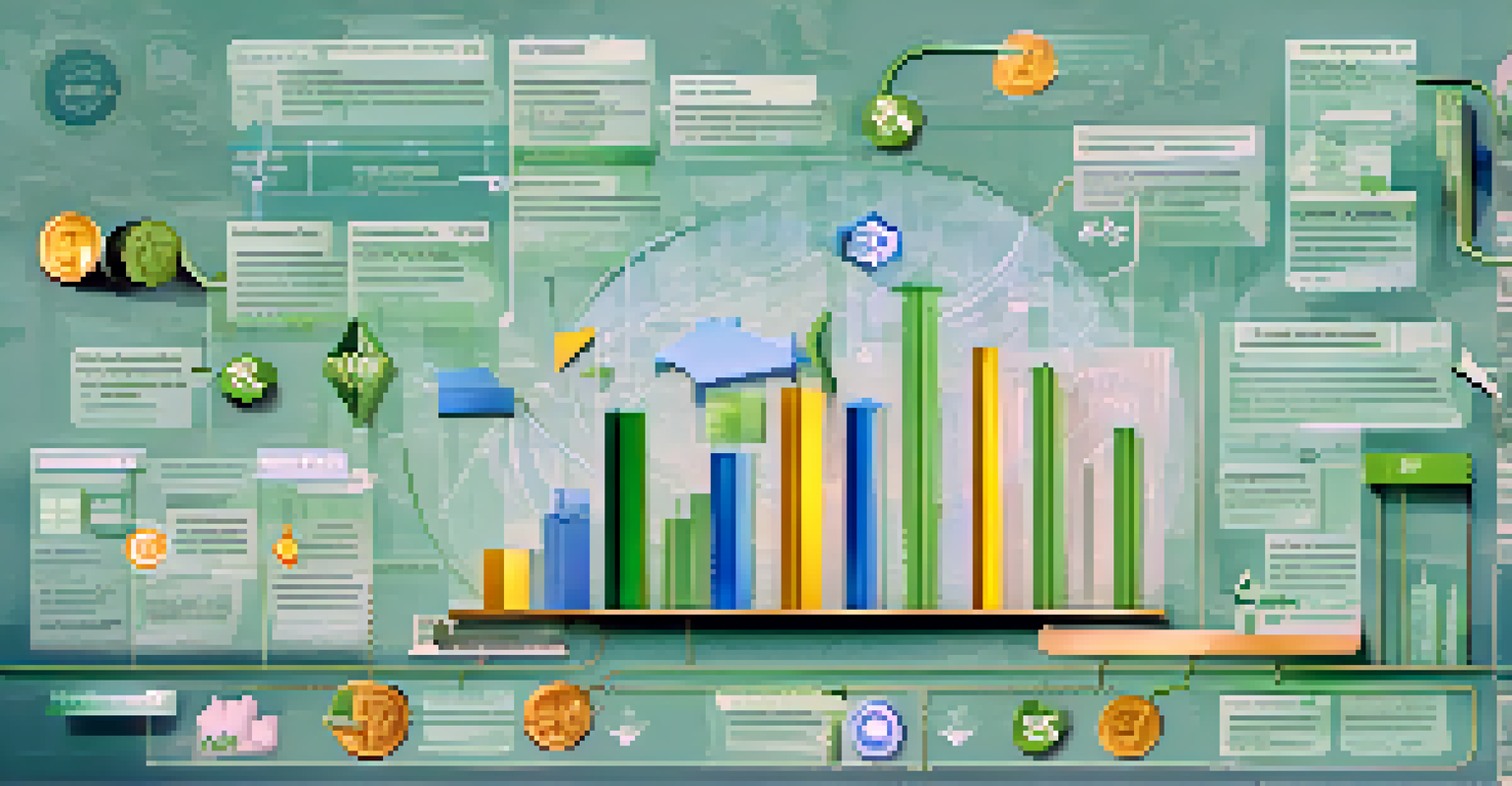The Role of Taxation in Controlling Inflationary Trends

What is Inflation and Why Does It Matter?
Inflation refers to the general increase in prices and the fall in the purchasing value of money. When inflation rises, consumers find themselves paying more for the same goods and services, leading to a decrease in their overall purchasing power. Understanding inflation is crucial because it affects everything from household budgets to national economic policies.
Inflation is taxation without legislation.
A moderate level of inflation can be a sign of a growing economy, but excessive inflation can lead to economic instability. For example, if prices continuously rise unchecked, savings can lose value, and businesses may struggle to maintain profit margins. This can create a cycle of financial uncertainty and reduced consumer confidence.
In this context, the role of taxation becomes pivotal. Governments often utilize taxes as a tool to regulate spending and manage inflation, aiming to strike a balance that fosters economic growth while keeping inflation in check.
How Taxation Influences Consumer Spending
Taxes directly affect how much disposable income individuals have to spend. When taxes are increased, consumers may tighten their belts, leading to decreased spending on non-essential goods and services. This reduction in consumer demand can, in turn, help to slow down inflationary pressures.

For example, consider a scenario where the government raises sales tax. This increase may discourage consumers from making larger purchases, leading to a decrease in overall demand. Lower demand can help stabilize or even reduce prices, countering inflation.
Inflation Impacts Purchasing Power
Rising inflation leads to higher prices and decreased purchasing power for consumers.
Conversely, if taxes are lowered, consumers may feel more financially buoyant, potentially increasing their spending. While this can stimulate economic growth, it also risks pushing inflation higher if supply cannot keep up with demand.
The Role of Government Spending in Inflation Control
Government spending, funded by taxation, plays a critical role in managing the economy. When inflation is high, the government can opt to reduce spending, which helps to decrease the overall money supply in the economy. This reduction can lead to a cooling effect on inflation.
The art of taxation consists in so plucking the goose as to get the most feathers with the least hissing.
For instance, if the government cuts back on infrastructure projects and public services, it may lessen the demand for materials and labor, which can stabilize prices in those sectors. This action can also signal to businesses that they should be cautious with pricing strategies.
However, it's a delicate balance. If the government cuts spending too drastically, it risks pushing the economy into a recession, which can have long-term negative effects on employment and growth.
Taxation as a Tool for Economic Stabilization
Taxation can serve as a crucial tool for stabilizing the economy during inflationary periods. Progressive tax systems, where higher earners pay a larger percentage of their income in taxes, can help redistribute wealth and maintain consumer spending power. This can be particularly important when inflation disproportionately affects low- and middle-income households.
For example, during periods of high inflation, increasing taxes on luxury goods can help slow down spending in non-essential areas. This can redirect consumer focus towards basic needs, stabilizing demand and prices for essential goods.
Taxation Influences Consumer Behavior
Changes in tax rates can significantly affect disposable income and consumer spending, impacting overall economic stability.
Ultimately, using taxation strategically can help mitigate the impacts of inflation, ensuring that the economy remains balanced and resilient.
The Impact of Inflation on Tax Revenue
Inflation can also affect government tax revenue. As prices rise, the nominal income of individuals and businesses may increase, leading to higher tax revenues. However, if inflation outpaces wage growth, the real income of consumers may stagnate, impacting their ability to pay taxes.
Consider a situation where inflation drives up the cost of living, but wages remain static. Individuals may find themselves in a pinch, unable to meet their tax obligations, which could lead to a decrease in overall tax revenue.
This dynamic highlights the importance of adjusting tax policies in response to inflation. Governments may need to consider measures such as tax relief or credits to ensure that tax systems remain fair and effective during inflationary periods.
Balancing Taxation and Economic Growth
One of the significant challenges for policymakers is finding the right balance between taxation and economic growth. While higher taxes can help control inflation, they can also stifle investment and innovation if not implemented thoughtfully. Striking the right balance is critical for long-term economic health.
For example, a sudden increase in corporate taxes may deter businesses from expanding, which can lead to job losses and lower economic activity. This, in turn, can exacerbate inflationary pressures as reduced supply fails to meet demand.
Government Spending Controls Inflation
Strategic government spending, funded by taxation, is essential for managing inflation and maintaining economic balance.
Thus, policymakers must carefully consider the timing and structure of tax policies to foster an environment that encourages growth while effectively managing inflation.
Global Perspectives on Taxation and Inflation Control
Taxation strategies vary widely across countries, influenced by economic conditions, cultural norms, and political systems. For instance, some countries may implement higher VAT (Value Added Tax) to manage inflation, while others might favor income tax adjustments. These strategies reflect different approaches to balancing economic stability and growth.
In recent years, international organizations have increasingly focused on the relationship between taxation and inflation control. They advocate for transparent tax systems that can adapt to changing economic landscapes, ensuring that countries can effectively respond to inflationary pressures.

By examining global perspectives, we can learn valuable lessons about the effectiveness of various taxation strategies in managing inflation, ultimately leading to more informed policies at the national level.